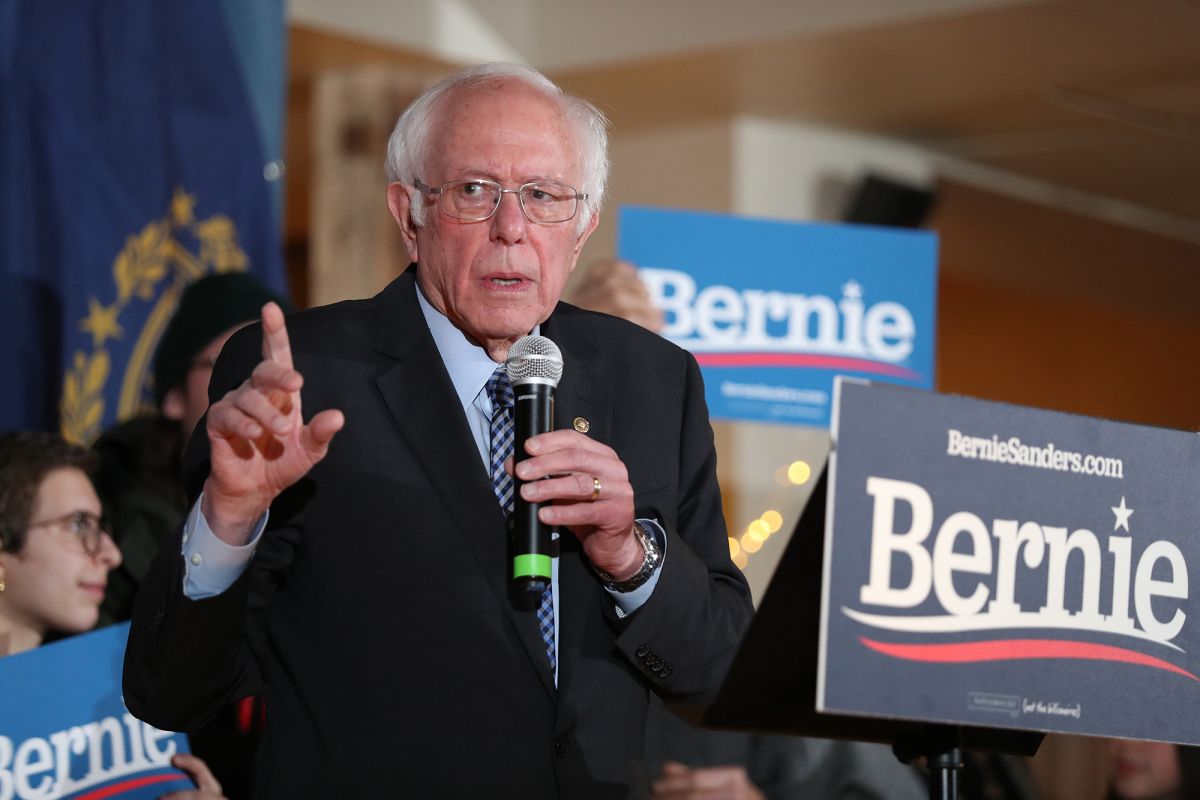The Democrat candidate race has sparked wide-spread criticism of the media’s treatment of Bernie Sanders.
In a Reddit thread titled ‘Covering the Bernie Blackout’, members of the public criticise leading media outlets around the world for understating the prominence and support Sanders has as one of the leading candidates in the race. In the light of the Iowa Caucus that originally failed in providing any sort of clarity to the increasingly complicated situation, media both in the US and abroad have been called out for their branding of Sanders as a revolutionary.
Before the messy delivery of results that ultimately narrowly placed him second in the race after Pete Buttigieg, the media had seemed to be deeming Sanders as a moderate quality candidate despite strong results in recent polls. According to the New York Times, he sits second in the national polls behind Joe Biden with an average support of 24%. Why is a prominent candidate like Sanders pushed aside by the media and what could this mean for the outcome of the race?
Reddit users are sharing screen captures and videos of him being omitted from lists of candidates and introduced second in poll results and statistics despite having the largest percentage out of all candidates. These considerations extend well beyond the US mainstream media, with The Guardian listing Sanders as one of the projected losers in the Iowa caucus while also acknowledging the threat he has been to Biden’s early support.
What seems to be the reason for some of this media ignorance is Sanders’s more left-leaning stance on politics compared to his more centrist competition. However, despite the media attitudes against him, his support base has steadily grown, especially among voters of colour, as reported by a New York Times poll watch article at the end of January.

The widespread claim of unfair media bias is not unfounded. Reddit users cite Edward Herman and Noam Chomsky, both among the highly respected scholars of media and mass communication, and their propaganda model of political communication as the basis for their claims. The page introduces the book Manufacturing Consent, which argues that unconventional political figures are more likely to receive critical media coverage due to their opposition to existing power structures.
What the critics mean by ‘Bernie Blindness’ is not the lack of coverage given to Sanders but the way he is rather subtly presented as the inferior choice in the race. With all the previous suspicious media activity, it’s no wonder that accusations of rigged polls and deliberate manipulation of the results process is heard from the public in response to the delay at Iowa.
What this whole ordeal seems to signal to the public is the chaos inside the Democratic Party. With no clear direction for the future or unity in the face of Trump’s uncontested place as the Republican candidate of choice, many sceptics question the possibility of any Democrat rising to the occasion.
Cracks within the Democratic Party don’t only stem from the competition between candidates with differently viewed policies and standpoints – specifically the more centrist ones that oppose Sanders’s left-leaning views – but also from the legacy of the 2016 election and the bitter defeat against Trump.
Everyone from high-profile Democrats to the media are highlighting that the candidate of choice must unify support in order to beat Trump, but no one seems willing to define who that might be. In a recent interview, Hillary Clinton referenced, although somewhat implicitly, her opinion of Sanders’s inability and inadequacy in uniting or representing the Democrats.
Although she stresses her support for the chosen candidate, regardless of their identity, her words reveal a deep distrust towards the man with slightly different views. However you might feel about the whole ordeal of the Democratic power battle and each candidate, the fact that the US political sphere has remained a field of ‘everyone for themselves’ is undeniable.
Ranging from early declarations of winning before the release of the results in Iowa to a subtle casting aside of political actors that do not fit into the existing power relations, the presidential election process exhibits the idea of paving your own way to victory despite everything that opposes you.
The issue is, paradoxically, that revolutionary ideas have always had trouble penetrating the traditions of the presented consensus shared by leaders and the media in the US. So, whether the public could unify under a candidate like Sanders, who differs from other candidates in his values, is not the issue: rather, the question remains whether the Democratic Party would be willing to unite under the leadership of a figure like him.
Image: New York Post

